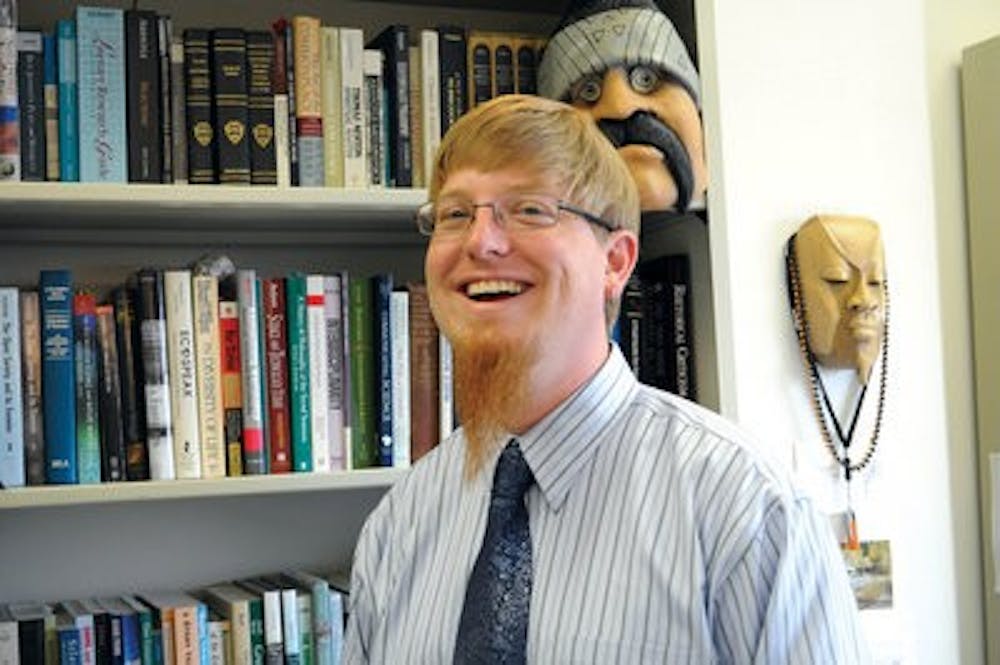Derek Ross has accomplished what was thought to be near impossible.
He made class fun.
Ross, assistant professor of Auburn University's Master of Technical and Professional Communication Program, makes going to class worth getting out of bed.
"With Dr. Ross, class is never boring," said Zachary Fritz, junior in English. "He does a good job of keeping students involved in the class, and I found it really enjoyable."
For Ross, his job is his passion.
"I absolutely love teaching," Ross said. "I love research and writing, too, but most of all, I love seeing folks get excited about their own world and seeing how they can make a difference."
Jo Mackiewicz, associate professor in English, said she knows Ross is a committed professor.
"I hear his dedication when he talks about his students," Mackiewicz said. "He considers the assignments carefully, makes the grading rubric clear and takes time to be a detail-oriented instructor."
Fritz had Ross as a professor and as a mentor when he applied for a fellowship.
"He's extremely relaxed as a teacher while also incredibly enthusiastic," Fritz said. "He clearly knows the subject matter well."
Ross said his research is primarily on environmental rhetoric, or how environmentally-themed arguments are perceived by the public.
"I look at the problem of proof-making and how you and me and everybody else in the world has to vote, understand arguments and figure out how to spend their money," Ross said, "essentially, how we make decisions in relation to our world."
Ross said he will be teaching a class this summer on environmental rhetoric and ethics policy.
"We're going to take on the problems of how all the corporations in the world try to shape your perception of what's going on," Ross said. "For example, Obama and Glenn Beck make arguments that superficially sound good, so we look inside their heads to see what is really going on."
Ross said his definition of technical communication is clear and concise writing that forms a bridge between specialists and nonspecialists. The writer should consider audience, context and design.
"Everything from the influence of vaccines and the latest NASA discoveries to what's happening in genetics," Ross said. "That's all information that someone steeped in the culture of mathematics and science has created, and often those folks don't do well explaining it."
Ross said his activism was teaching and that he feels like he is making a difference in the world.
"One of our recent projects was to do research proposals for something we would improve in the local area," Fritz said. "They range from anything like implanting credit card machines in Jordan-Hare Stadium to providing healthy eating options on campus; it just had to be something that could realistically be done in this area."
Ross said he puts a lot of emphasis in class on being involved in the community and helping the environment.
"I want to teach students how to shape and change public policy because they can make a difference," he said. "You don't have to be an expert, you just have to know who to talk to and how to say it."
Ross said he feels most rewarded when students' work results in interviews, job offers and pay raises.
"Doing work that teaches them and makes a difference at the local level is about the best thing we can be doing as teachers," Ross said.
Do you like this story? The Plainsman doesn't accept money from tuition or student fees, and we don't charge a subscription fee. But you can donate to support The Plainsman.





